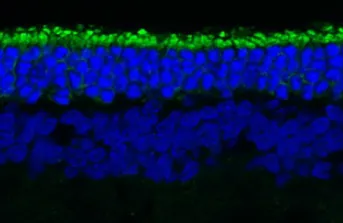
Breakthrough: Blood Pressure Drug May Halt Vision Loss in Genetic Eye Disorders
2025-04-15
Author: Jessica Wong
In a groundbreaking development, researchers at the National Institutes of Health (NIH) have discovered that the blood pressure medication reserpine could potentially combat vision loss associated with retinitis pigmentosa, a rare inherited eye disorder.
Originally approved in 1955 for hypertension, reserpine has shown promise in protecting retinal neurons in animal studies, particularly in female models. This discovery could pave the way for faster therapies not only for retinitis pigmentosa but also for numerous other inherited retinal diseases.
"This could significantly advance the development of treatments for retinitis pigmentosa and numerous retinal dystrophies, irrespective of the specific gene mutations involved," said Dr. Anand Swaroop, lead investigator and senior researcher at NIH's National Eye Institute.
What Is Retinitis Pigmentosa?
Retinitis pigmentosa causes gradual degeneration of the retina, the eye's light-sensitive tissue, leading to blindness that may begin in childhood or adulthood. Current gene therapies, while promising, often take years to develop and are costly, as they target specific genetic mutations.





 Brasil (PT)
Brasil (PT)
 Canada (EN)
Canada (EN)
 Chile (ES)
Chile (ES)
 Česko (CS)
Česko (CS)
 대한민국 (KO)
대한민국 (KO)
 España (ES)
España (ES)
 France (FR)
France (FR)
 Hong Kong (EN)
Hong Kong (EN)
 Italia (IT)
Italia (IT)
 日本 (JA)
日本 (JA)
 Magyarország (HU)
Magyarország (HU)
 Norge (NO)
Norge (NO)
 Polska (PL)
Polska (PL)
 Schweiz (DE)
Schweiz (DE)
 Singapore (EN)
Singapore (EN)
 Sverige (SV)
Sverige (SV)
 Suomi (FI)
Suomi (FI)
 Türkiye (TR)
Türkiye (TR)
 الإمارات العربية المتحدة (AR)
الإمارات العربية المتحدة (AR)